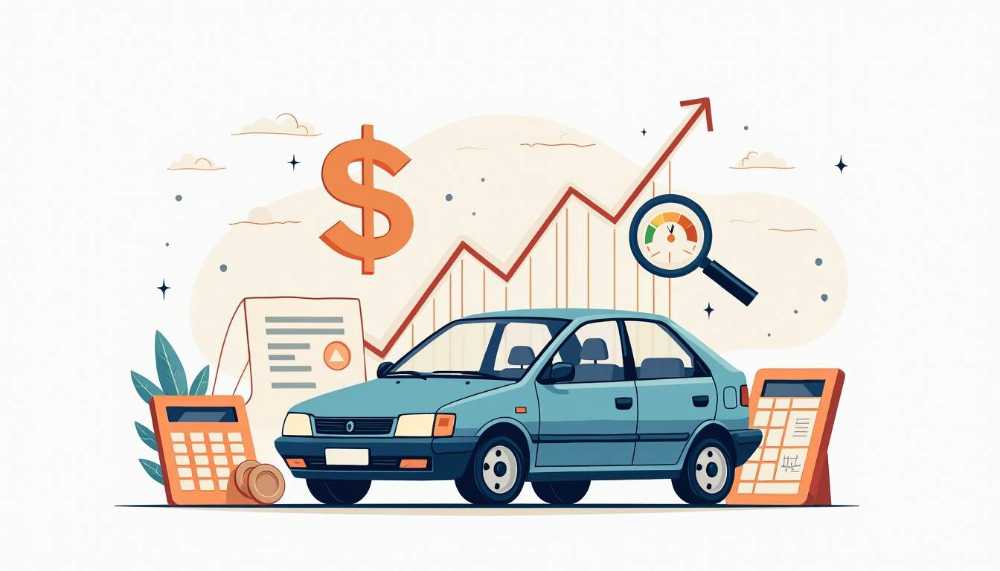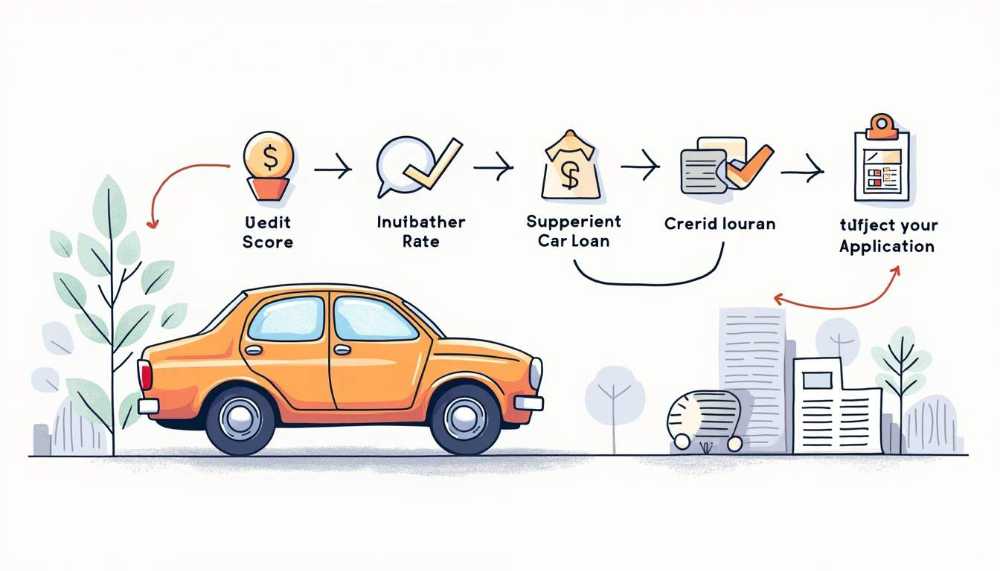Refinancing a car loan can be an excellent way to save money or adjust your loan terms. However, many borrowers express concern about the potential impact on their credit score. In this guide, we will explore the ins and outs of refinancing your car loan without damaging your credit. We will break down the process into manageable sections, ensuring you have all the information needed to make an informed decision.
Understanding Car Loan Refinancing
Refinancing a car loan involves taking out a new loan to pay off an existing one. The new loan typically offers better terms, such as a lower interest rate or different loan duration. However, it’s essential to understand its implications fully.
The Basics of Car Loan Refinancing
The main goal of refinancing is to reduce your financial burden. This can be achieved through lower monthly payments or a shorter loan term, ultimately saving you money in the long run. To refinance, you typically need to go through a lender who will assess your current loan, creditworthiness, and vehicle information.
Before proceeding, it’s wise to gather all necessary documents, including your current loan statement, proof of income, and any relevant financial information. This preparation can streamline the refinancing process and help you secure the best possible terms. Additionally, understanding your vehicle's current market value can provide leverage in negotiations with lenders, ensuring you are not only getting a better rate but also a fair assessment of your car's worth.
Why Consider Refinancing Your Car Loan?
There are several reasons to consider refinancing your car loan. Many borrowers opt to refinance to take advantage of reduced interest rates, especially if their credit score has improved since the original loan approval. Additionally, refinancing can provide flexibility to switch from a longer-term, lower-payment loan to a shorter one, allowing you to pay off your car faster and potentially save on interest.
Moreover, if you’re facing financial hardship, refinancing can also serve as a strategy to lower your monthly payments, providing some relief during tough times. It’s also worth noting that refinancing can sometimes unlock additional benefits, such as the option to consolidate other debts or access cash from your vehicle’s equity.
Assessing Your Current Car Loan
Before jumping into refinancing, it’s crucial to evaluate your current car loan. Understanding the details of your existing loan will help you determine if refinancing makes sense for your financial situation.
Evaluating Your Current Interest Rates
Start by checking the interest rate on your current loan. If rates have dropped significantly since you took out your loan, refinancing could lead to significant savings. Generally speaking, reducing your interest rate by even a small percentage can translate into large savings over the life of the loan.
Understanding Your Loan Term
Next, consider the length of your existing loan. If you are halfway through a five-year loan and you refinance to a new five-year term, you might lower your payments, but you could end up prolonging your debt. Understanding the terms will help you make an informed decision that best suits your financial goals.
The Impact of Refinancing on Your Credit Score
One of the most significant concerns when refinancing is the potential impact on your credit score. Understanding this aspect can alleviate worries and help you take the right steps.
How Refinancing Affects Your Credit
When you apply for a refinance, lenders will pull your credit score, which generally results in a small, temporary dip in your score. This happens because a hard inquiry is recorded on your credit report. Additionally, if you take out a new loan, the average age of your credit accounts may decrease, which can also impact your score.
Mitigating the Impact on Your Credit Score
Fortunately, there are ways to minimize the impact on your credit. Primarily, you should avoid applying for multiple loans within a short period. If you shop for refinance offers within a 14- to 45-day window, most scoring models will count these inquiries as a single inquiry, reducing the effect on your credit score.
Additionally, maintaining a consistent payment history during this period is crucial. Timely payments on your existing debts can help counterbalance any negative effects from the refinancing process.
Steps to Refinance Your Car Loan
Now that you have a better understanding of refinancing, you can take actionable steps to refinance your car loan effectively and responsibly.
Checking Your Credit Score
The first step in the refinancing journey is to check your credit score. Knowing your score helps you understand what interest rates you might qualify for and helps you identify any areas that might need improvement. You can obtain a free credit report from various sources annually.
Shopping for the Best Refinance Rates
Once you know your credit score, it’s time to shop around. Consult different lenders, including banks, credit unions, and online loan platforms, to get a sense of the refinancing options available. Be sure to compare interest rates, loan terms, and any fees associated with refinancing.
Applying for the Refinance Loan
Once you have researched and found the best refinancing option, the next step is to complete the loan application. Collect essential documents, including proof of income, loan details, and information about your vehicle. Be thorough and accurate in your application, as this can speed up the approval process.
Tips to Refinance Without Hurting Your Credit
To ensure that your refinancing process goes smoothly and your credit score remains intact, consider the following expert tips.
Timing Your Refinance Right
The timing of your refinance can significantly affect both your interest rates and credit score. It’s advantageous to wait until your credit score has improved or until interest rates are low before refinancing. Keeping an eye on market trends can help inform your decision.
Keeping Your Loan Applications Within a Short Time Frame
As discussed earlier, grouping your loan applications within a short time frame can minimize the negative impact on your credit score. Aim to complete your applications within 14 days—this allows multiple inquiries to be treated as one, protecting your credit health while you search for the best refinancing options.
In summary, refinancing your car loan can be a sound financial decision if done correctly. By understanding the process, evaluating your current loan, and taking steps to mitigate the impact on your credit score, you can successfully navigate the refinancing landscape. With the right preparation and approach, you'll be on your way to better loan terms without hurting your credit.






